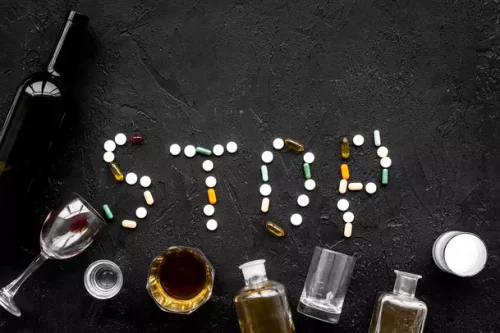
If you or someone you love is struggling with the devastating side effects of addiction and are unsure of where to turn, call us today at . Oxford Treatment Center, American Addiction Centers’ Mississippi drug treatment center, is ready to help you get the treatment you need today. Cocaine overdose deaths continue to rise, according to reports from the Centers for Disease Control and Prevention (CDC).

Who is at risk for cocaine addiction?

Additionally, treatment for cocaine addiction helps address the root causes of your substance abuse. It allows you to explore any underlying psychological or emotional issues that may have contributed to your addiction. By addressing these issues, you can develop healthier coping mechanisms and reduce the likelihood of relapse in the future. Table Table22 provides a more detailed summary of the evidence on all pharmacotherapies for cocaine use disorder, stratified by drug class. The characteristics and findings of individual studies are provided in Online Appendix Tables 5 and 6. SAMHSA’s mission is to lead public health and service delivery efforts that promote mental health, prevent substance misuse, and provide treatments and supports to foster recovery while ensuring equitable access and better outcomes.

Learn More About Drug Misuse and Addiction
- Cocaine use was lower in the high-dose amphetamine group, but the difference was not statistically significant.
- Like many other chronic conditions, treatment is available for substance use disorders.
- If you are interested in learning more about rehab admissions, what to expect in inpatient rehab, or want to discuss paying for addiction treatment please contact one of our caring admissions navigators at any time of day or night.
- The self-help support group message is that addiction is an ongoing disorder with a danger of relapse.
- For studies reporting multiple baseline types, direct baseline testing was preferred to positive test results at screening, which was in turn preferred to estimation based on the first week of treatment.
- Still, our review was limited by high heterogeneity of craving assessments across studies and by a great range of pharmacotherapies.
The reward pathway, known as the mesolimbic pathway,26 or its extension, the mesocorticolimbic pathway, is characterized by the interaction of several areas of the brain. Treatment retention in RCTs of antidepressants vs placebo for cocaine use disorder. 1 high-ROB RCT of comorbid cocaine and opioid-dependent methadone-maintained participants found no difference in retention between groups. Indirectness (of results to general population—participants had achieved abstinence prior to the outpatient phase).
- A special challenge for pharmacotherapeutic treatments for CUD is the fact that cocaine has diverse effects in the brain, involving multiple kinds of neurotransmitters.
- Drug abuse, especially cocaine use, can have devastating effects on your physical and mental health.
- At CCCADA, we have helped countless individuals overcome their addiction to cocaine and build a brighter future.
- Someone who’s dependent on cocaine, for example, will experience withdrawal symptoms when attempting to quit using the drug.
Phone, Video, or Live-Chat Support
In another trial, cocaine-dependent subjects were randomly assigned to coping skills training (a CBT-based intervention) or to a meditation and relaxation training control treatment. Because no medications have been approved for the treatment of CUD, psychosocial treatment is currently the standard treatment. Group counseling and individual drug counseling are the most common treatments. Cognitive behavioral therapy (CBT) and motivational interviewing have also been shown to be effective. Perhaps the most effective psychosocial treatment for CUD is contingency management (CM), using voucher-based cocaine addiction treatment reinforcement. In this treatment, patients receive vouchers redeemable for goods and services in the community, contingent upon achieving a predetermined therapeutic goal.
However, the positive association between contingency management treatment approaches and a significant reduction in objective cocaine use was not entirely unexpected. All treatments to which participants were simultaneously exposed in a treatment arm within a study were coded by category. For example, a single treatment group may have been treated with fluoxetine and methadone medications and cognitive behavioral therapy concomitantly, and this treatment group would have been coded in the antidepressant, psychotherapy, and opioid treatment categories. We searched multiple data sources (MEDLINE, PsycINFO, and Cochrane Library) through November 2017 for systematic reviews and randomized controlled trials (RCTs) of pharmacological interventions in adults with cocaine use disorder.
Contingency management gets second chance
- Two reviewers independently assessed the quality of each RCT using a tool developed by the Cochrane Collaboration10 (Online Appendix Table 8).
- Cocaine can also cause other adverse effects, such as anxiety, crawling sensations on the skin, hallucinations, and paranoia.
- After reviewing the full text of 354 studies, we included seven systematic reviews and 48 RCTs specific to cocaine use disorder (Fig. (Fig.1).1).
Challenges confronting the development of psychosocial treatments for CUD lie less in identifying more effective strategies but more on finding innovative ways of applying these strategies. Finding innovative ways to reward abstinence among cocaine users is a challenge. Identifying ways to sustain the benefits of CM over longer periods of time is a challenge. Other challenges include identifying innovative platforms for providing psychosocial treatment.